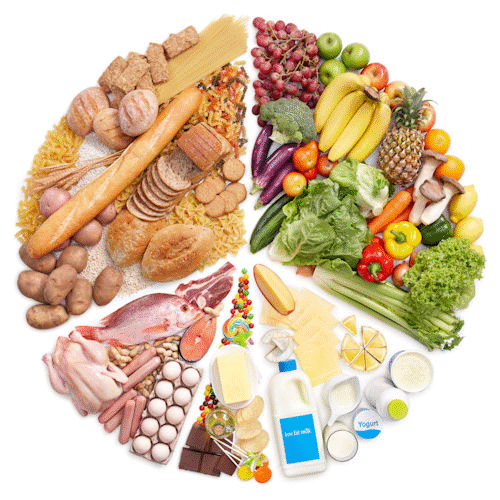Introduction
↪ Bioinorganic chemistry is an branch of chemistry that deals with the role of metal or compounds within biological and biochemical systems.↪ Bioinorganic chemistry is a field that examin...


↪ Human body requires food for smooth and proper function of life and to survive in different situations.
↪ Nutrients are chemical substances required for the proper functioning of the body, including repair, and protection against disease causing microbes.
↪ Depending on the nutrient they are needed in small or larger amounts.
↪ On the basis of metabolic outputs on our bodies nutrients are classified as macronutrients and micronutrients.
Macro Nutrients
↪ Macro nutrients are chemical substances required in large amount in the range of gram in our daily diet for the proper functioning of our body,
↪ Carbohydrates, proteins, fats and water are examples of macronutrients present in food.
⁕ Carbohydrates
↪ Carbohydrates of our diet undergo hydrolysis in digestive system to give glucose which is a major source of energy provider to carryout various functions of our body.
↪ If it consumed in excess it is stored in liver and skeletal muscle as glycogen.
↪ Some examples of carbohydrates provider are cereals, potato, rice, apple, banana, cauliflower, carrot, beans, etc.
⁕ Proteins 
↪ Proteins are essential for repairing and regenerating body tissues and cells.
↪ Protein is regarded to help in the healthy functioning of immune system and manufacturing hormones.
↪ In case of extreme starvation, the muscles in body which are made up of proteins are responsible to provide energy.
↪ Some examples are pulses, beans, legumes, meat, egg, seeds, avocado, spinach, etc.
⁕ Fats
↪ Fats are important for overall cell functioning, making steroids and hormones, dissolving fat soluble vitamins and hormones and protecting our body organs.
↪ Fat provides large amount of energy as twice as energy rich carbohydrate and protein.
↪ Some examples are almond, walnut, pumpkin, olives, avocado, sunflower, mustard seeds, etc.
⁕ Water
↪ Unlike other macronutrients, water is not energy provider but it is very essential in large amount for the metabolism in our body.
↪ It is also required as lubricant and shock absorber.
↪ Water in our body cells, organs and tissues helps to regulate temperature and also protect them from dehydration.
Micro Nutrients
Chemical substance required in small quantities for the normal functioning of our body system with healthy growth preventing the attack of diseases are called micro nutrients.
Vitamins and minerals are the examples of micronutrients.
None of them are source of energy provider but some of them induce macronutrients to produce energy.
⁕ Vitamins
↪ They are organic compounds which are water soluble (B and C) and fat soluble (A, D, E and K).
↪ Unlike macronutrients, a small quantity is sufficient to complete the functioning of our body system.
↪ Vitamins can not be synthesized by our body so it is to be supplied from the diet or from other synthetic sources.
↪ Vitamins are essential for normal metabolism.
⁕ Minerals
↪ Minerals are inorganic micronutrients which are required by our body in very small concentration.
↪ Na, K, Mg, Ca, P, S, Fe, Zn, Cu, Mn, Co, etc. are the examples of minerals which are used as micronutrients.
↪ They are further classified as macro minerals (Na, K, Mg, Ca, P, S, Cl) and micro minerals (Fe, Zn, Cu, Mn, etc.).
Common uses of micro minerals are:
↪ to balance the negative electric charges associated with macro-organic ions present in the cellular fluids.
↪ to adjust osmotic pressure of fluid inside the cell.
↪ to keep the cell swollen being prevented from collapse.
↪ Micro minerals act as cofactors for the proper functioning of many enzymes and other proteins in body.